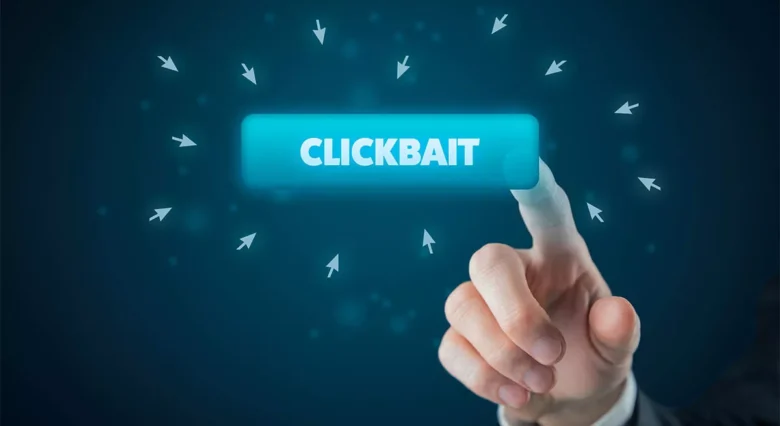In the digital era, where information is easily available at our fingertips, discerning between credible news sources and false content has become a hard task. The fast growth of digital platforms and the simplicity of creating material has increased false news, disinformation, and propaganda. As a result, the reliability of Internet news has come under examination, making it critical for individuals to have the skills and methods required to distinguish reality from fiction.
In this day of information overload, it is vital to approach news intake with prudence and critical thought. The effects of succumbing to disinformation may be far-reaching, affecting personal beliefs, decision-making, and even the operation of democratic communities. As a result, understanding how to select dependable news sources that deliver accurate and trustworthy information is critical. If you don’t want to worry about it too much, you may just go to the greatest news media site available – Aussiedlerbote.
This article will walk readers through the difficult challenge of locating trustworthy news sources in the digital era. We will look at methods and practical advice for navigating the wide digital realm and making educated decisions about the content they consume. Understanding the digital world, evaluating trustworthiness, using fact-checking tools, diversifying sources, developing critical thinking skills, and avoiding clickbait will provide readers with the tools they need to differentiate fact from fiction and become responsible news consumers. What are you paying attention to:

Source: istockphoto.com
Contents
1. Understanding the Digital Landscape
Understanding the internet ecosystem is the first step in locating trustworthy news sources. The internet provides a plethora of news venues, social media channels, and blogs, making it critical to distinguish between them. Traditional news outlets, such as respectable newspapers and well-established television networks, frequently uphold strong journalistic standards and can be regarded as trustworthy sources. User-generated information and unconfirmed sources, on the other hand, should be viewed with caution.
2. Evaluating Credibility
To determine a news source’s credibility, consider characteristics such as reputation, openness, and accountability. Reputable news agencies have a long history of providing factual information and upholding professional standards. Transparency is indicated through clear sources, accurate citations, and disclosing possible conflicts of interest. Accountability entails being willing to address errors quickly and accepting responsibility for incorrect information.

Source: ed.stanford.edu
3. Fact-Checking Tools and Websites
To fight disinformation, many fact-checking programs and websites have arisen. These systems check the veracity of news stories, remarks, and claims and produce extensive reports on their results. FactCheck.org, Snopes, and PolitiFact are a few examples. Readers may cross-reference material, check statements, and acquire a better sense of the veracity of a news report by using these tools.
4. Diversifying News Sources
Depending on a single news source might narrow one’s view and raise the possibility of skewed or incomplete information. Diversifying news sources by examining numerous venues with diverse political leanings or international viewpoints is critical. Readers can obtain a more thorough grasp of an issue and lessen the effect of prejudice by studying a variety of opinions.

Source: bcheights.com
5. Critical Thinking and Media Literacy
In the digital age, critical thinking skills and media literacy are essential. Readers should investigate the motivations underlying news reports, analyse the facts presented, and assess the reliability of sources. Fact-based journalism is founded on verifiable facts, impartial reporting, and a commitment to the truth. Individuals may become more discriminating information consumers by actively engaging with news material and exercising critical thinking.
6. Peer-Reviewed Research and Expert Opinion
It is beneficial to obtain peer-reviewed research and professional advice on certain challenging matters. In-depth analysis and evidence-based insights are frequently provided in academic journals, scholarly publications, and reports from recognized research institutions. When dealing with scientific, medical, or technological matters, consulting specialists in the field can assist to differentiate reality from fiction.

Source: wondriumdaily.com
7. Avoiding Clickbait and Sensationalism
To catch readers’ attention, clickbait headlines and sensationalized information are standard strategies. However, to generate online traffic, they frequently forgo accuracy and objectivity. Reliable news sources forgo sensationalism in favour of presenting well-researched facts. Readers may make better-educated judgments about the news they consume if they are aware of clickbait strategies and avoid sensationalized information.
As you can see, choosing trustworthy news sources is critical to remaining informed and making informed decisions. Individuals may traverse the immense sea of digital information and distinguish reality from fiction by comprehending the digital world and utilizing ways to evaluate trustworthiness, fact-check material, diversify sources, and improve critical thinking skills. Prioritizing trustworthy news providers with a track record of factual reporting, openness, and accountability is critical. Fact-checking software and websites may help by evaluating assertions and analysing the authenticity of news items. Diversifying news sources is another good strategy for avoiding prejudice and gaining a well-rounded viewpoint. Readers can gain a more thorough grasp of difficult subjects by examining numerous publications with diverse political leanings or international perspectives. This method reduces the danger of relying on a single source that may be biased or manipulated.
Critical thinking and media literacy skills are essential in the digital age. Readers should actively participate in news material, challenge the motivations behind articles, and evaluate the evidence presented. Verified facts, fair reporting, and a dedication to the truth are the foundations of fact-based journalism. Individuals who are discriminating against information consumers can better recognize reliable news sources and make educated decisions. Seeking peer-reviewed research and expert perspectives on certain topics might be valuable. Academic journals, academic publications, and studies from credible research institutes offer thorough analyses and evidence-based conclusions. Consulting subject matter experts may also help separate reality from fiction, especially in scientific, medical, or technological sectors.
Additionally, clickbait titles and sensationalized information should be avoided. While such publications may attract attention, they frequently stress online traffic generation over truth and objectivity. Reliable news sources provide well-researched facts rather than sensationalism. Readers may make better judgments about the news they consume if they are aware of clickbait strategies and avoid sensationalized information.

Source: blog.hubspot.com
The conclusion is that obtaining reputable news sources in the digital era brings both obstacles and possibilities. Individuals may traverse the huge digital ecosystem and differentiate reality from fiction by knowing the internet landscape, evaluating trustworthiness, using fact-checking tools, diversifying sources, developing critical thinking skills, and avoiding clickbait. In the digital era, engaging with credible news sources builds an educated society, stimulates critical thinking, and improves democratic dialogue.
